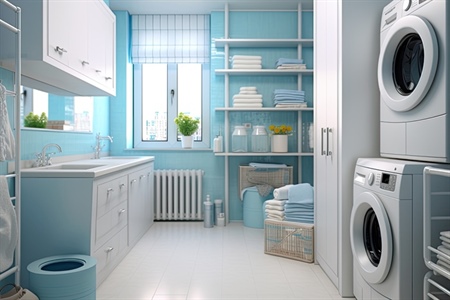How Can You Ensure All Systems in Your Home Are Fully Operational?

Ensuring all systems in your home are fully operational is more than just routine maintenance—it's crucial for safety, efficiency, and preserving your property's value. Whether you're preparing for a home inspection, planning to sell your property, or simply safeguarding your investment, keeping every component—from heating and cooling to plumbing and electrical systems—in top shape is necessary.
Neglected home systems can quickly escalate into costly repairs, lower your home's market value, or even pose significant health and safety risks. In this guide, we’ll address essential questions that every homeowner should consider. We'll explore what specific actions you should take to ensure your heating and cooling systems pass inspection, the significance of thoroughly testing your electrical outlets and switches, and how plumbing performance directly influences your home’s inspection outcomes.
Whether you're a seasoned homeowner or new to the responsibilities, understanding these elements helps maintain your home’s integrity and prepares you confidently for inspections.
How to Check Your Heating and Cooling Systems Before Inspection
Your home's heating and cooling systems significantly impact comfort, energy efficiency, and inspection results. Start by visually inspecting HVAC units for cleanliness and signs of wear, such as rust or corrosion. Regularly replace air filters, as dirty filters not only reduce system efficiency but can also negatively affect air quality, leading to inspection red flags.
Additionally, verify thermostat operations by cycling through both heating and cooling modes. Ensure vents and ducts are unobstructed and clean, as blockages or accumulated dust and debris could indicate neglect, causing concerns during an inspection. Professional maintenance, including seasonal tune-ups, ensures operational integrity and catches minor issues before they escalate.
Performing these simple checks and routine maintenance helps ensure your heating and cooling systems are fully functional, promoting better inspection outcomes and long-term home comfort.
Importance of Testing Electrical Outlets and Switches
Testing electrical outlets and switches before an inspection is crucial to verify safety and proper functionality. Faulty electrical components are significant hazards, potentially causing electrical fires or electrical shock risks. Inspectors rigorously assess electrical systems, emphasizing the importance of ensuring all outlets, switches, and related circuits operate correctly and safely.
Begin your checks with a simple outlet tester, available at most hardware stores, to detect common issues such as reversed polarity, open grounds, or loose wiring. Check each outlet and switch throughout your home, paying special attention to areas frequently exposed to moisture, like kitchens and bathrooms, which should have Ground Fault Circuit Interrupter (GFCI) outlets installed and operational.
By proactively identifying and resolving electrical issues, you prevent potential safety risks and improve your home's overall inspection readiness, maintaining high safety standards.
Impact of Properly Functioning Plumbing Systems on Inspection Reports
A properly functioning plumbing system significantly influences your home's inspection results and property value. Inspectors assess plumbing rigorously to identify leaks, water pressure issues, and pipe deterioration. Undetected plumbing problems can lead to extensive water damage, mold growth, and structural deterioration, negatively impacting inspection reports.
Perform visual checks for leaks around faucets, toilets, and beneath sinks. Evaluate water pressure levels at different points in your home—low or inconsistent water pressure may indicate blockages or pipe damage. Inspecting exposed pipes for corrosion or signs of leaks also helps identify potential trouble spots early.
Ensuring your plumbing system operates effectively and addressing minor issues promptly prevents major problems, positively affecting your inspection report and maintaining your home’s structural integrity.
Benefits of Operational Smoke Detectors and Alarms
Fully operational smoke detectors and alarms are critical for ensuring home safety and meeting inspection criteria. Inspectors verify the functionality and strategic placement of these devices to ensure compliance with local safety codes. Operational alarms drastically reduce the risk of injuries and fatalities during home fires by providing timely alerts.
Regularly test smoke and carbon monoxide detectors monthly, replacing batteries at least annually or immediately when the devices signal a low-battery alert. It's advisable to replace entire units every ten years, as sensors degrade over time and may become unreliable.
Keeping alarms fully functional protects your home and family and significantly contributes to a positive inspection report, demonstrating proactive homeowner diligence and safety awareness.
Roof and Gutter Conditions and Their Inspection Impact
Your home's roof and gutter condition directly affects inspection results, as they protect your property against weather-related damage. Inspectors look closely at roofing materials, checking for damaged shingles, leaks, and overall integrity, alongside gutters to ensure proper drainage and protection against water intrusion.
Inspect your roof periodically for damaged or missing shingles, pooling water, or signs of mold and algae growth, which might indicate inadequate drainage or aging materials. Gutters should be regularly cleaned and maintained, ensuring water flows freely and away from your home's foundation to prevent structural water damage.
Proactively addressing roof and gutter maintenance helps prevent major issues such as leaks and structural deterioration, significantly improving your home's overall condition and inspection readiness. Homeowners in areas with heavy seasonal rainfall should particularly prioritize these inspections to maintain home integrity.
How DMC Home Inspections Can Assist You
DMC Home Inspections provides expert guidance and thorough inspection services, helping homeowners ensure every home system is fully operational and inspection-ready. Specializing in detailed property evaluations covering electrical systems, HVAC, plumbing, roofs, and gutters, our certified professionals identify potential issues early, providing clear, actionable reports.
We aim to help homeowners maintain safety, functionality, and property value through comprehensive inspections tailored specifically to your home's needs. Our detailed inspections and professional recommendations enable homeowners to confidently manage their properties, ensuring optimal home performance and inspection outcomes.
If you're preparing for a home inspection or want a professional evaluation of your home's systems, contact DMC Inspections today! You can call us at 612-310-1692, or visit our office at 7425 River Shore Ln, Champlin, MN 55316 to schedule your comprehensive inspection.